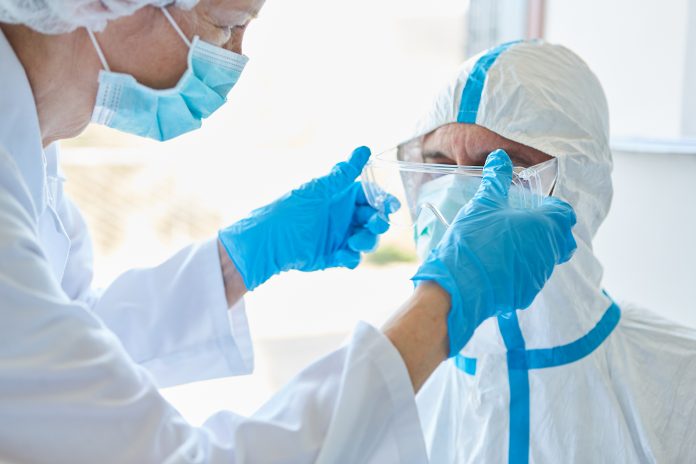Louise Hosking, Chartered Safety & Health Professional, Director, Hosking Associates Ltd, discusses what healthcare management and the government should be doing to support the wellbeing of healthcare professionals fighting on the frontlines of the COVID-19 crisis
When we fall, when we become ill, or when we need support, we look to healthcare professionals; those who work tirelessly to support the community they serve. Healthcare workers are currently fighting a war with COVID-19 – a virus we can’t see, we can’t smell, and we don’t know is there. Those same people find themselves working under additional pressure with unfamiliar, extreme demands in a situation which is changing every day.
If healthcare workers are taking care of us, who is taking care of them?
One in four of us will suffer from a mental health illness at some point in our lives which makes it a foreseeable risk. Of the 12.8 million lost working days due to stress, anxiety and depression, statistics show health and social care are second only to the defence sector. (1) Managing stress and anxiety is a complex area and not just influenced by work alone; add to this the lack of availability of food, looking after children, vulnerable relatives and watching suffering every day. Healthcare professionals are on the frontline and they too are contracting the virus. Also, consider the support staff who bond with the people they care for. Before this virus took hold, 44% of registered nurses and midwives said they were unwell due to their work, up from the previous year. (2)
A survey by Nursing Journal found three-quarters of nurses said they don’t have time to take a break during one or two of their shifts every week. More than half said they don’t even have time to have a drink of water. More than 2,000 nurses responded, describing a culture of excessive workloads, hunger and dehydration. We know as OSH practitioners this puts staff and others at risk.
As a society, we were already in the grip of a mental health epidemic and now we must prepare (as best we can) for how this crisis will affect us all. The healthcare profession already operates tiered supervision to talk through experiences. This isn’t something we can over-process or create procedures for. Now, as more of us are having to work from home and keep our distance from vulnerable people the natural friendship supports we usually have are there less. People are not connecting with their usual support networks and, therefore, not sharing, which means people are much less able to share their anxieties and worries.
Healthcare professionals deal with deeply traumatic events which could affect whole teams. There are reports of lack of PPE and staff/teams having to make difficult choices – and they are understandably scared. Fear can result in shifts being missed or good people leaving the profession which puts pressure on those remaining. Normally, specialist teams will be made available to provide counselling. But, will there be enough of them?
Recovering from severe mental health conditions takes significant support and time. So, if we can prevent mental ill-health, we can truly make a difference to individuals, their families and wider networks. If a person is not mentally healthy, they are more likely to make mistakes which can, in extreme cases, lead to harm to themselves, or to others.
Our health care leaders will have to lead in a way they have never done before; to prepare their teams before every shift to implement/design workflows which not only protect their physical health but also their mental health.
No-one should have to go to work fearing for their own safety and those they come into contact with. It’s time for the Government to take responsibility as the ultimate NHS “employer” to provide whatever mental health support and PPE is necessary to protect their staff.
There is also something we can all do – we can follow the Government advice: Stay at home wherever possible; adhere to the social distancing advice i.e. stay 2 metres apart from other people, including in open spaces; don’t touch your face and wash your hands as often as you can.
We all need to be responsible; we need to look after the health of our healthcare professionals.
Top tips for Health Leaders
- Work with occupational psychologists to look at the design of work on the front line, identify where the most pressure is and work together to find ways to reduce it. Think big, think small, think sideways
- Ensure talking therapies are readily available enabling everyone at all levels to talk through their experiences
- Ensure leaders are supported so they can, in turn, lead their teams effectively and provide a psychologically safe workplace
- Communicate more clearly than you have ever done in your life
- If a risk assessment has determined PPE is required to protect workforce, make sure it is the right PPE and it is readily available. Ensure staff are trained in how to use PPE effectively and that they know its limitations.
References











